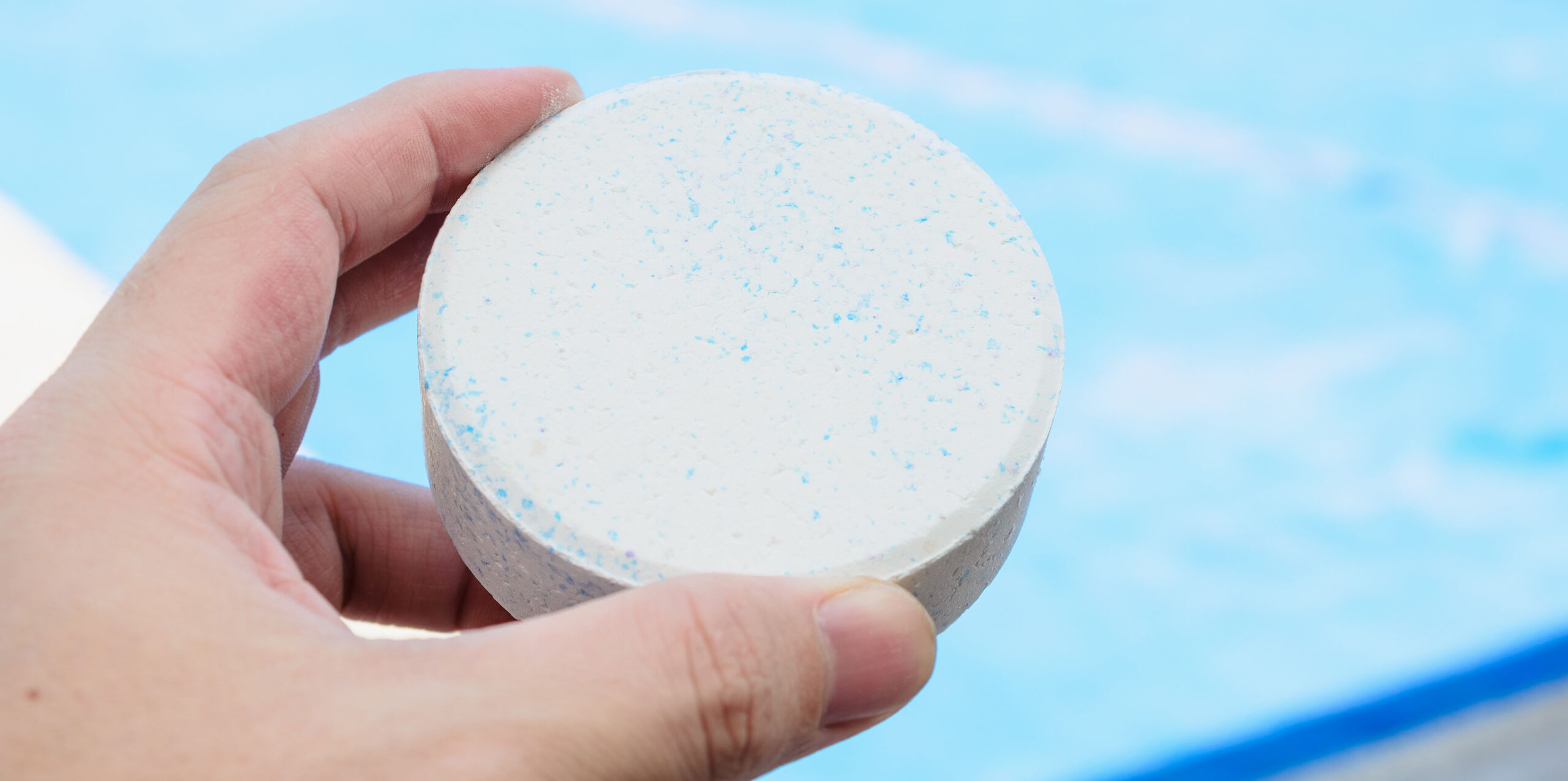The Great Chlorine Tablet Shortage

If you currently use chlorine tablets (AKA trichlor) as the primary sanitizer for your pool, you may have noticed that prices are unusually high, quantities may be restricted, or it may not be available at all.
The reason why trichlor tablets are so expensive and why they are sold out at many pool supply stores is because of the national trichlor supply shortage.
Why is there a trichlor shortage?
When Hurricane Laura swept through the Gulf Coast in August of 2020, the Bio-Lab Westlake plant in Louisiana caught on fire and burned for three days. This fire destroyed a huge amount of dry chemical used by the pool services industry, including a significant supply of trichlor. In fact, the domestic supply of trichlor was reduced by about a third due to this Bio-Lab plant fire, putting a squeeze on an already high-demand product. Currently, chemical distributors are rationing trichlor, and prices for the dry chemical in certain cases have nearly doubled.
The impact of this fire is magnified by the fact that US trichlor producers successfully lobbied to have significant tariffs levied on imported trichlor. Existing supplies of imported trichlor were exhausted in 2020, and even prior to the fire, the only three domestic producers of trichlor (Bio-Lab, Occidental, Clearon) struggled to keep up with demand in 2020.
The end result is that there simply will not be enough trichlor for the 2021 pool season to supply all current users, a shortage which may continue through to 2022.
If your property is currently using trichlor as your main pool sanitization chemical, now is a good time to consider switching to liquid chlorine bleach — a chemical that is also widely used to treat drinking water. And the recent supply issues are not the only reason that switching from tabs to bleach is a smart choice; there are many other benefits to using bleach.
Why should you reconsider trichlor?
Trichlor is a popular sanitizer for residential pools and pools with a low bather load. Trichlor is a solid sanitizer, which makes it easy to transport and use. Trichlor also has the highest available chlorine content of all the solid chlorine sanitizers. However, there are significant drawbacks that make trichlor a non-ideal primary sanitizer for a commercial pool.
While it is relatively straightforward to supply trichlor to commercial properties, Poolsure has opted instead to supply bleach as our primary sanitizer. Here is why we made this decision, which are the same reasons why you might want to reconsider trichlor:
1) Trichlor raises pool CYA to unsafe levels. Bleach does not.
2) Trichlor feeds continuously. With Poolsure, bleach feeds based on demand.
Trichlor raises pool CYA to unsafe levels. Bleach does not.
Your pool benefits from CYA — up to a point. CYA protects your pool’s chlorine from the sun, but too much of it will actually reduce the sanitizing effects of chlorine. Trichlor tablets add chlorine and CYA into your pool at the same time, but while chlorine is used up during disinfection, CYA remains in your pool indefinitely. With continued trichlor use, the CYA level in your pool will continue to increase until chlorine will no longer be effective at sanitizing your pool.
Pools that are sanitized by trichlor often show high levels of CYA, sometimes even surpassing the 100 ppm upper range of the Taylor test kit. Most aquatic pool codes recommend keeping CYA levels below 50 ppm or a similar number. The only proven way to lower CYA levels within your pool is to partially drain and refill the pool with fresh water, something that can get very expensive and can have a negative environmental impact.
Trichlor feeds continuously. With Poolsure, bleach feeds based on demand.
Trichlor feeds slowly into a pool through an erosion feeder, which means that it must erode based on water flow through a feeder. This also means that trichlor is fed continuously at the same pace. First, this makes it hard to respond in high bather load situations (ex: the pool gets cloudy during summer weekends). Second, it means that trichlor feeds into your pool even whether your pool needs more chlorine or not.
A chemical controller (like the one Poolsure supplies) automates pool sanitization by feeding bleach into the pool only when the chlorine levels are low. This automation allows chemical sanitization to be responsive, adding the exact amounts needed to accommodate whatever the bather load is during any given time.
Trichlor is easy, but Poolsure makes bleach even easier.
Some people choose trichlor over safer alternatives like bleach because of convenience. Trichlor is very easy to transport and is known for being a set-it-and-forget-it pool sanitizer — at least, until the pool turns green seemingly overnight due to CYA buildup.
Bleach is a liquid sanitizer, which means that it’s heavy, making it difficult for someone to transport and pour into the pool every day. However, Poolsure makes bleach sanitization easy by combining bleach delivery with chemical automation, making bleach the most convenient, cost-effective, and safe primary sanitizer on the market.
Considering the lack of trichlor supply with the drawbacks in usage, there hasn’t been a better time to drop the trichlor tablets and start automating with bleach.
If you’re thinking about making the switch from trichlor to bleach, reach out to us today through chat or via any of our contact forms. Let’s see if bleach is a better solution for your pool!
About Poolsure
Poolsure provides water management services for commercial pools and spas along the Gulf Coast. Let us bring safe swimming to your property and help you keep your pool beautiful and safe!
How to Reach Us
ADDRESS
1707 Townhurst Drive
Houston, TX 77043
PHONE
1-800-858-7665
EMAIL
customerservice@poolsure.com
HOURS
Monday – Friday
7:00am – 5:30pm
CURRENTLY SERVICING
Texas, Louisiana, Mississippi, Florida
Want More Info?
Let us revolutionize your relationship with your pool!
We are currently servicing commercial pools in Texas, Louisiana, Mississippi and Florida.
